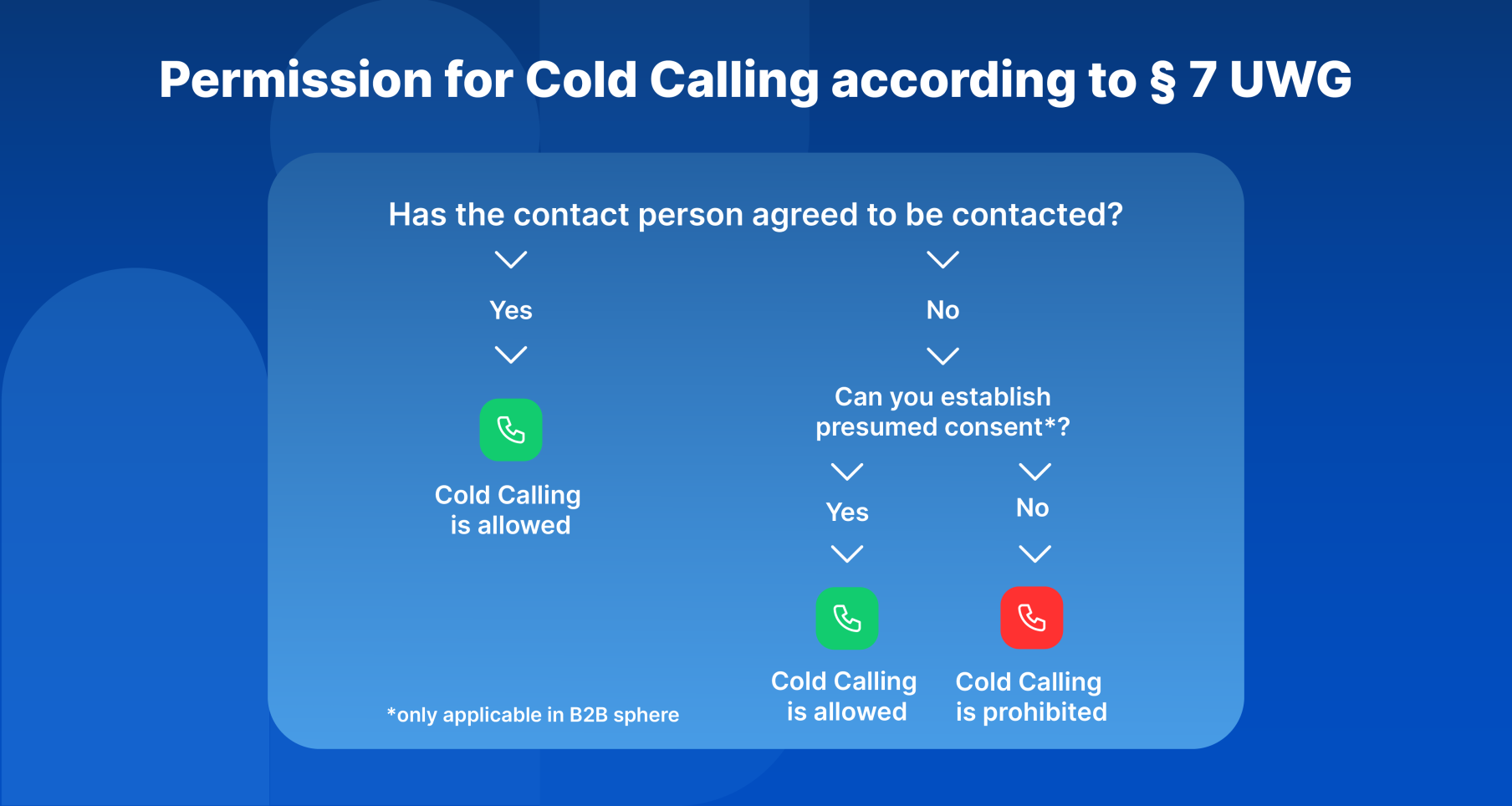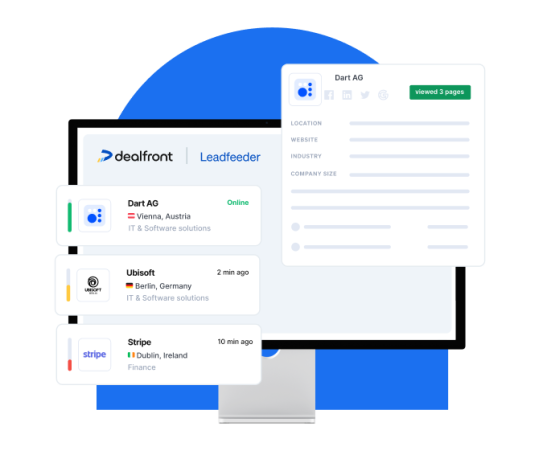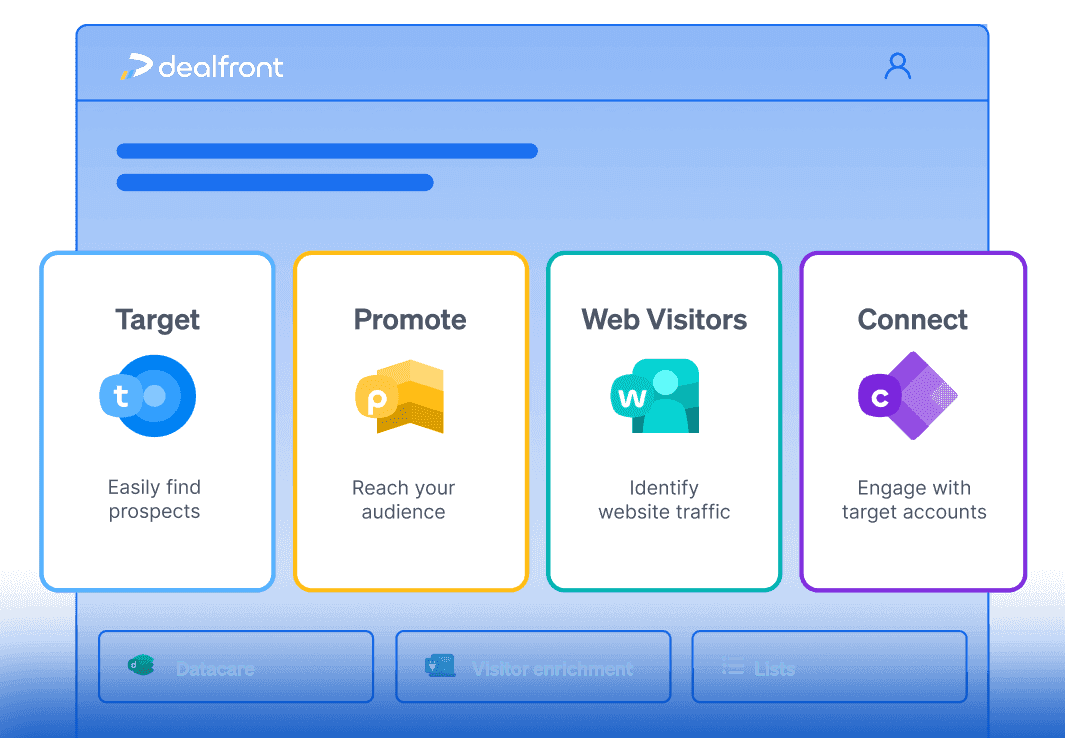Disclaimer: Before reading this, please note that this is not legal advice but an opinion piece and that it is your responsibility to ensure that any products and services you use are in compliance with the relevant laws and regulations.
At Dealfront, we understand the challenges our users face when trying to connect with potential customers. The German Act against Unfair Competition (UWG) has strict regulations that make it tricky to promote products or services without (explicit) consent.
If you haven’t heard of the UWG by now, don’t worry. The UWG is often overshadowed by the far more famous GDPR (short for General Data Protection Regulation). However, the UWG actually contains specific rules for outreach activities via email or phone.
Outbound Prospecting: What you need to know
As many B2B sales professionals know, outbound prospecting involves targeting and engaging prospective customers. If done well (and legally!), it can be an effective way to create more sales pipeline and win business. It often involves ensuring that you target the right types of potential business and engage via multiple communication channels, including phone calls, emails, and LinkedIn messages.
A key tactic for outbound prospecting is cold calling. Cold calling refers to making unsolicited phone calls to individuals or businesses to sell or market something. It involves reaching out to potential customers who have not previously explicitly expressed interest or consent.
Today's sales require a multi-channel, multi-touch, and multi-threading approach. Success hinges on delivering value at every prospecting stage and efficiently personalizing outreach to capture customer attention.
Michael Larche, Vice President New Business Sales @ Dealfront
Is cold-calling allowed in Germany?
First and foremost, we need to differentiate between cold calling in the context of reaching out to individual customers (B2C; business-to-consumer) and cold calling in the business-to-business (B2B) environment.
By law (specifically the UWG in Germany), making cold calls to individual consumers over the phone is initially prohibited unless the person has explicitly given their consent beforehand. In the event of a legal dispute and to avoid a fine, you would be responsible for demonstrating that the potential customer you contacted consented to receiving such a sales call ("burden of proof"). Cold calling in the B2B context is subject to slightly different rules. Although it also generally requires consent, it is sufficient to have presumed consent (§ 7 II Nr. 1 UWG).

This means that the targeted customer doesn’t need to explicitly agree before being called for sales purposes. Instead, it is sufficient to have concrete indications that the product or service you promote is of interest to your contact and that the person being called can be presumed to currently agree to be contacted via phone.
Establishing presumed consent requires you to show that the prospect is already interested in your company and products/services in a way that indicates they would be willing to receive further information via phone.
How does Dealfront support compliant outreach?
So how can you establish and – if necessary – prove that you can rightfully presume the consent of your prospect? Here is where our Dealfront tools can help you remain compliant!
Using the tools Leadfeeder and Promote, you can determine whether the potential customer you contacted was genuinely interested in your product, therefore implying presumed consent.
Leadfeeder enables you to track and document which customers visited your webpage and subpages that relate to your products or services. But that’s not all.
With Promote, you can show that these customers didn't stumble upon your site by chance but were specifically interested in what you offer, enticed by your promotional banners. This is an even stronger indication that they'd welcome further information through an outreach call.
The more visits you can prove, the stronger your case for presumed consent. Plus, documenting these indicators is easy with our user-friendly platform.
At Dealfront, we want to ensure our tools are the key to unlocking potential customers and safeguarding your business from costly fines and disputes. Using Leadfeeder and Promote, you could provide concrete evidence of a customer's interest in your offerings, thereby supporting your compliance with German UWG requirements when making cold calls.








